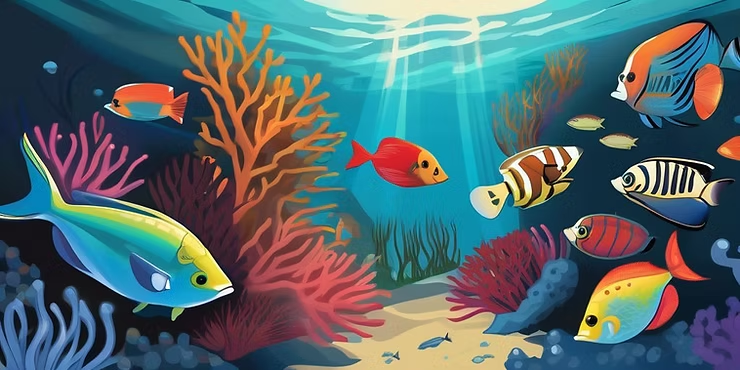Overview
The Importance of Marine Life
Marine life is essential for the health and stability of Earth’s ecosystems. Coral reefs shelter countless species while protecting coastlines from erosion. Fish populations regulate other organisms and maintain biodiversity. Additionally, marine species contribute to carbon sequestration, helping to reduce the impacts of climate change. Protecting marine life is not only vital for ocean health but also for human well-being and survival.
Threats to Marine Life
Our oceans face multiple threats that endanger fragile ecosystems:
- Plastic pollution: Millions of tons of waste enter the ocean annually, harming marine animals and habitats.
- Chemical pollution: Industrial and agricultural runoff disrupts reproduction and health in marine species.
- Oil spills: Spills devastate ecosystems, causing mass mortality and long-term ecological damage.
Without immediate intervention, these threats could lead to irreversible harm to marine biodiversity.
Current Conservation Efforts
Global conservation initiatives are working to protect marine ecosystems. These include establishing marine protected areas, implementing sustainable fishing methods, and promoting education about ocean stewardship. Collaboration among scientists, policymakers, and communities ensures stronger strategies to preserve biodiversity and safeguard the future of our oceans.
The Impact of Pollution
Plastic Pollution
Single-use plastics like bottles and bags are often mistaken for food by marine animals, leading to entanglement and ingestion. These plastics also leach chemicals into the water, affecting ecosystems. Reducing waste and promoting recycling are critical steps toward solving this crisis.
Chemical Pollution
Chemicals from agriculture and industry contaminate waters, impairing immunity, reproduction, and survival of marine organisms. Stricter regulations and sustainable alternatives are essential to protect ocean ecosystems from toxic exposure.
Oil Spills
Oil spills coat marine species, impairing movement and contaminating food chains. Long-lasting effects include reduced reproductive success and ecosystem collapse. Preventive measures and effective cleanup responses are vital to limit damage.
Overfishing and Its Consequences
Depletion of Fish Stocks
Overfishing reduces fish populations, threatening ocean biodiversity and the livelihoods of communities reliant on fishing. Solutions include fishing quotas, catch limits, and marine reserves to allow populations to recover.
Destruction of Marine Ecosystems
Pollution, overfishing, and habitat destruction destabilize marine ecosystems, leading to loss of biodiversity. Protecting coral reefs, mangroves, and other habitats is necessary to maintain ocean balance.
Impacts on Local Communities
Communities depending on fishing face economic and food security challenges due to overexploitation. Supporting sustainable practices and offering alternative livelihoods helps reduce their vulnerability.
Hope for the Future
Marine Protected Areas
MPAs safeguard habitats, restore ecosystems, and protect vulnerable species. They also provide research opportunities that enhance understanding of healthy ecosystems. Expanding MPAs is vital to ocean recovery.
Sustainable Fishing Practices
Sustainable methods such as selective fishing gear and fair-trade practices reduce bycatch and protect ecosystems. These approaches ensure viable fish stocks for future generations.
Education and Awareness
Raising awareness empowers people to make sustainable choices and inspires communities to protect the ocean. Educational programs also cultivate the next generation of ocean stewards, ensuring long-term conservation success.
Conclusion
The survival of marine life depends on collective action. Through pollution reduction, sustainable fishing, marine protection, and awareness campaigns, we can secure the future of our oceans. Together, governments, organizations, and individuals can protect marine ecosystems and build a healthier planet for generations to come.

